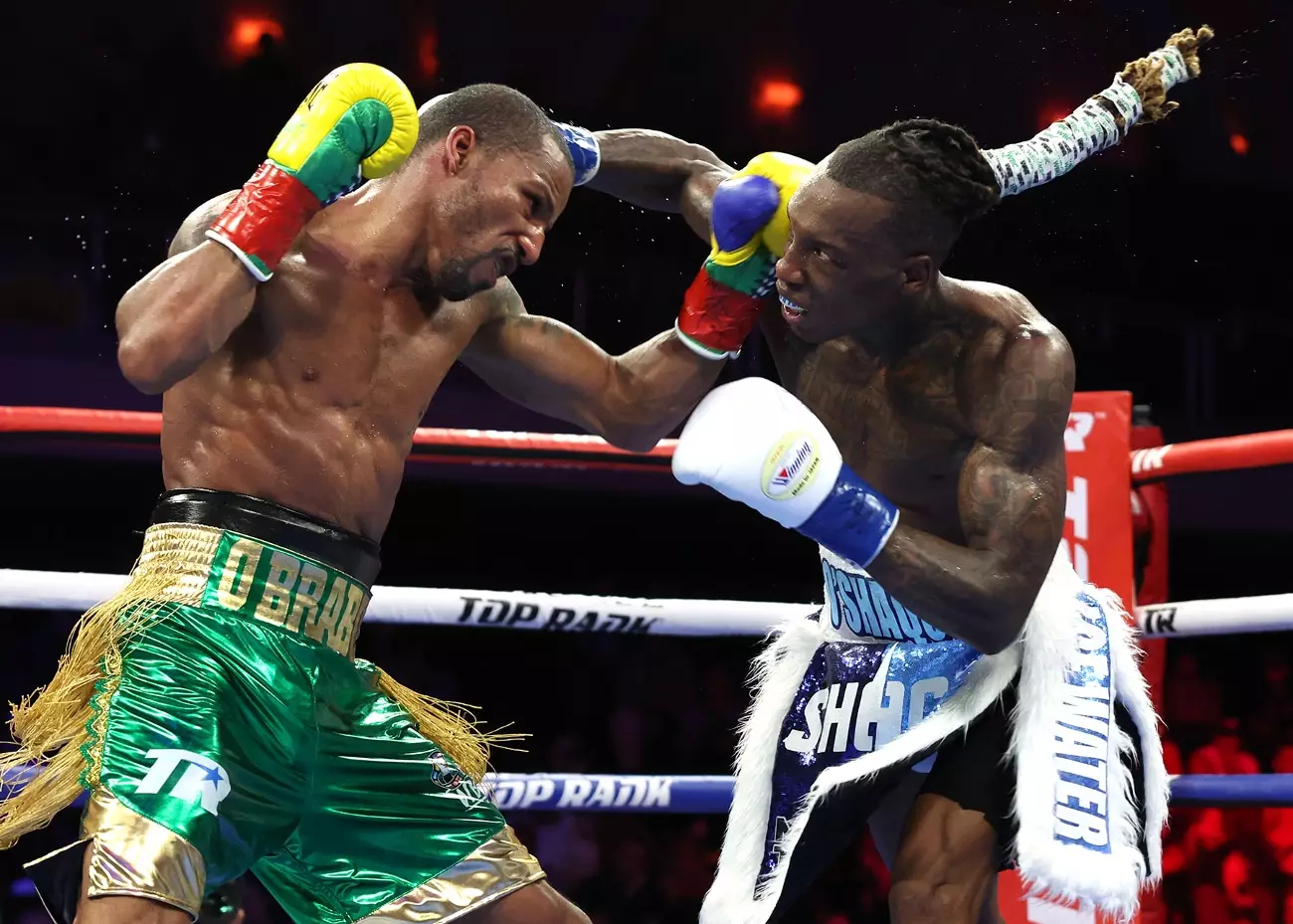By Amílcar Barnett, Ringside, Verona, NY, USA-
O’Shaquie Foster’s recent triumph over Robson Conceicao for the WBC super featherweight title has ignited discussions both inside and outside the boxing ring. Winning by a narrow split decision with scores of 115-113, Foster’s performance has left many spectators and analysts questioning the legitimacy of the victory. Although he insists he won decisively, the bout was met with mixed emotions from the crowd—a reflection of the lackluster action he presented rather than a display of dominant boxing skills.
In the aftermath of the match, Foster made it clear that he has no intentions of granting Conceicao a rematch, stating, “There won’t be no trilogy because I beat him the first time.” His remarks underscore a trend among winners in combat sports; often, fighters are unwilling to give what they perceive as a lesser opponent another chance. However, this approach can be shortsighted, as public perception has a powerful influence in forging careers, especially in a sport that thrives on drama and rivalry.
Despite Foster’s claims of superiority in their recent encounter, the fight showcased a more complex dynamic. His comment about Conceicao receiving an “early Christmas gift” suggests a level of frustration with both the fight outcome and the crowd’s reception. The insistence on moving forward to a potential unification bout against the winner of the Navarrete-Valdez clash feels more like an attempt to deflect criticism than a strategic career decision.
Foster’s performance has been described as more defensive than offensive, a surprising tactic from a fighter looking to assert dominance. Many observers noted his ineffective aggression, moving forward while still being outpunched by Conceicao, which highlights an underdeveloped aspect of his fighting style. It raises the question: is Foster capable of pressing the action effectively, or has he relied too heavily on counter-punching due to his previous experience as a backfoot fighter?
While he expressed disappointment in not securing a knockout, it’s vital for fighters to learn from bouts that present themselves as stagnant. Foster himself acknowledged moments where he allowed Conceicao to hold back and survive. This self-awareness could be pivotal for him moving forward. Improvement here is crucial, especially if he wishes to compete at the highest levels.
Foster’s focus on unification bouts speaks to an ambitious career trajectory, yet he must reconcile his style and approach if he hopes to succeed against top-tier opponents like Navarrete or Valdez. The outcome of their rematch, set for December 7th, will be pivotal, not just for Foster but for the super featherweight division at large. His refusal to fight Conceicao again, especially if perceptions of his last victory linger, may put a cap on his aspirations unless he can decisively assert himself against higher-caliber contenders.
While Foster may currently hold a title, the journey ahead will require a re-evaluation of his fighting strategy. The boxing community watches closely—not only in anticipation of Foster’s next move but also with questions about his ability to claim his spot among the elite.


Leave a Reply